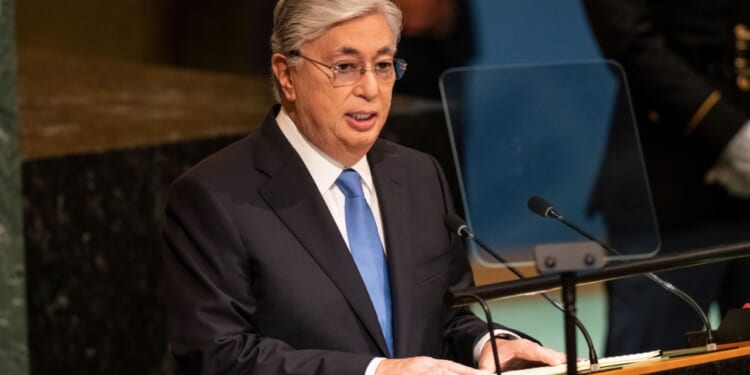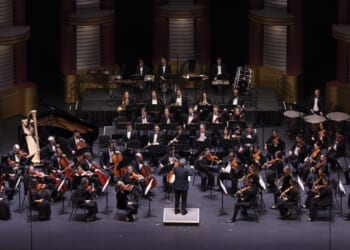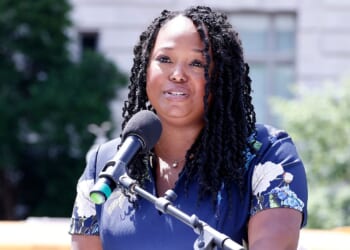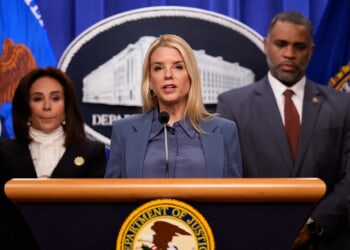Including more middle powers in the UNSC will grant international institutions more legitimacy.
During last month’s United Nations General Assembly in New York, two themes stood out among the heads of state: President Donald Trump’s sharp criticism of the United Nations and the repeated calls by world leaders for UN reform. These two strands are linked by the growing perception that the UN, in its current form, is struggling to address the world’s most pressing crises.
The United Nations faces a trust deficit. Its inability to resolve or even meaningfully de-escalate conflicts such as the war in Ukraine and the humanitarian catastrophe in Gaza highlights the paralysis of the Security Council (UNSC). Deadlock has become the defining feature of the body that was meant to safeguard international peace and security. Many now view the UN as outdated and ill-suited to the twenty-first century.
It was in this context that President Kassym-Jomart Tokayev of Kazakhstan used his UNGA speech to call for comprehensive reform of the UN, with the Security Council at its core. “Comprehensive reform of the United Nations is a strategic necessity, not a subject for endless contemplations,” he declared. Tokayev proposed rotational representation for major powers from Asia, Africa, and Latin America, and argued that “responsible middle powers also need to be seriously amplified in the Security Council. In fact, they have already started to play a larger positive role in international relations, bringing balance and building trust.”
Tokayev’s words were part of a broader tide. African leaders reiterated their “Common Position,” calling for two permanent seats with veto power and at least two additional elected seats for the continent. The G4—Brazil, Germany, India, and Japan—once again pressed for permanent membership to reflect their geopolitical weight. These demands are not new. However, they are gaining renewed urgency as conflicts around the world expose the council’s dysfunction.
How UNSC Reform Could Benefit the United States
The instinct in Washington has long been to resist change in Turtle Bay. The five permanent members of the UNSC guard their veto privileges, and any proposal that risks diluting US influence is usually set aside. Yet dismissing reform outright would be shortsighted. For the United States, a carefully managed enlargement could serve strategic interests rather than threaten them.
First, a more representative council could help share the burden more effectively. At present, Washington shoulders disproportionate responsibility for setting the agenda and rallying coalitions, often against entrenched opposition. Expanding the table to include credible middle powers and more diverse regional voices could lend greater legitimacy to initiatives the United States supports. Decisions would still be contested, but they would carry the weight of broader buy-in.
Second, reform could help balance the narratives of China and Russia. Both powers exploit council deadlock to claim that the UN is paralyzed by Western obstruction. If more middle powers and non-aligned states had a say, it would be harder for Beijing and Moscow to monopolize oppositional narratives or frame the council as an arena of East-West confrontation. For Washington, the presence of additional swing votes could create more opportunities to shape outcomes.
Third, engaging reform would blunt criticism of the UN itself. President Trump’s broadside at UNGA—calling the institution ineffectual and a platform for “empty words”—struck a chord beyond his political base. Many view the UN as irrelevant precisely because the council reflects the geopolitical architecture of 1945, rather than that of 2025. Supporting measured reform would show that the United States is open to an inclusive order, enhancing American soft power at a time when it is often accused of clinging to an outdated status quo.
Significantly, Africa’s inclusion seems inevitable. Demographic weight, growing economies, and rising geopolitical influence make it unlikely that Africa will remain shut out of permanent membership in the long term. The United States can now shape the process, helping to define criteria, rotation mechanisms, and working methods that align with its interests. Engaging Africa’s position early gives Washington a chance to channel reform in constructive ways, rather than being forced to accept terms dictated by others.
Central Asia’s Missing Voice
Beyond Africa, there are other regions with no voice at all in the UNSC’s permanent structures. Central Asia stands out. The region sits at the crossroads of Eurasia, where Russian, Chinese, European, and American interests intersect. Its geography makes it directly exposed to the spillover effects of the Ukraine war. Instability in Afghanistan also poses a persistent challenge. Despite these high-stakes issues, Central Asia has no permanent voice in the council’s deliberations, leaving its concerns often mediated through external powers.
At the same time, Central Asia is becoming more relevant to global economic and strategic debates. The so-called Middle Corridor, an overland trade and transport route connecting China and Europe via Kazakhstan, the Caspian Sea, and the South Caucasus, has gained prominence as shippers seek alternatives to Russian transit routes.
Kazakhstan is also home to significant reserves of uranium, rare earths, and other critical minerals essential to the global green transition and advanced technologies. The country, for example, is the world’s largest uranium producer. With Central Asia increasingly positioned as a key supplier of strategic resources and a transit hub between continents, its lack of representation in the UNSC highlights a gap between current global dynamics and the council’s current composition.
Tokayev’s appeal for middle-power voices to be amplified is particularly relevant here. Kazakhstan, for instance, has sought to play a mediating role on several regional and international issues, positioning itself at times as a bridge between larger powers. It served as a non-permanent member of the Security Council in 2017–2018. It also hosted significant negotiations, from talks between Armenia and Azerbaijan to the Astana Process on Syria.
For the United States, recognizing the value of such middle powers is a pragmatic approach. These states are often cautious, consensus-oriented, and invested in stability. Their presence could make the council less polarized and more capable of forging compromises that major powers cannot reach on their own.
To be clear, reform is a challenging endeavor. Any change requires amendments to the UN Charter, which in turn require approval by two-thirds of the General Assembly and ratification by all five permanent members of the Security Council. The politics are daunting. But the debate itself is important. By engaging constructively, Washington can channel reform toward outcomes that protect its core interests, while projecting itself as a champion of legitimacy rather than obstruction.
Ultimately, a council frozen in the mid-twentieth century will only continue to generate cynicism and demands for alternatives. Embracing carefully managed change could reduce long-term criticism of the UN, including from American presidents. If reform is designed intelligently, it can preserve US leadership while updating the council’s legitimacy for a new century. That would serve both American interests and the international system the United States helped build.
About the Author: Michael Rossi
Michael Rossi is a Lecturer in Political Science at Rutgers University of New Jersey and a Visiting Professor at Webster University, Tashkent.
Image: Lev Radin / Shutterstock.com.


















